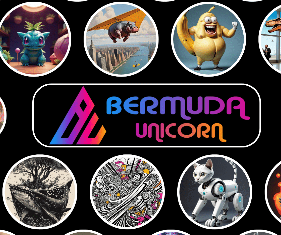Exploring NFT Games: A Revolutionary Leap in the Gaming Industry

In recent years, the gaming industry has experienced a seismic shift with the introduction of NFT (Non-Fungible Token) games. These games are leveraging blockchain technology to create unique and verifiable digital assets that revolutionize the way players interact with virtual worlds and their in-game items.
Understanding NFT Games
nft games are a genre of video games that integrate NFTs into their ecosystem. Unlike traditional in-game assets, which are typically confined to the game itself and lack true ownership, NFTs are unique digital tokens stored on a blockchain. This technology ensures that each NFT is one-of-a-kind, verifiable, and can be owned, traded, or sold by players.
Key Features of NFT Games
-
True Ownership: In NFT games, players truly own their in-game assets. These can include characters, skins, weapons, and other items that are tokenized as NFTs. This ownership extends beyond the game, allowing players to trade or sell their items on various NFT marketplaces.
-
Interoperability: NFT games often enable assets to be used across different games or platforms. For example, a character or item acquired in one game might be used in another, creating a more interconnected gaming ecosystem.
-
Play-to-Earn Model: Many NFT games adopt a play-to-earn model, where players can earn cryptocurrency or valuable NFTs through gameplay. This model provides an incentive for players to engage with the game and invest time, potentially earning real-world rewards.
-
Transparency and Security: Blockchain technology ensures that all transactions and ownership records are transparent and secure. Players can verify the rarity and authenticity of their assets, reducing the risk of fraud.
Popular NFT Games
-
Axie Infinity: One of the most well-known NFT games, Axie Infinity allows players to collect, breed, and battle fantasy creatures called Axies. Players can earn cryptocurrency through gameplay and trade Axies on the game's marketplace.
-
The Sandbox: This game offers a virtual world where players can buy, sell, and create assets using NFTs. The Sandbox provides tools for users to build their own experiences, fostering a creative and collaborative environment.
-
Decentraland: Decentraland is a virtual reality platform where players can purchase, develop, and monetize virtual land and assets using NFTs. It combines elements of social interaction, gaming, and real estate.
-
CryptoKitties: One of the earliest NFT games, CryptoKitties allows players to collect, breed, and trade virtual cats. Each CryptoKitty is a unique NFT, and the game has become a pioneer in showcasing the potential of NFTs in gaming.
Challenges and Future Prospects
Despite their innovative features, NFT games face several challenges. The volatility of cryptocurrency markets can impact the value of in-game assets, and the environmental impact of blockchain technology has raised concerns. Additionally, the integration of NFTs in gaming is still relatively new, and there are ongoing debates about the long-term sustainability and impact on traditional gaming experiences.
However, the future of NFT games holds exciting possibilities. As technology evolves and becomes more sustainable, NFT games are likely to become more mainstream. They have the potential to transform not only the gaming industry but also the broader digital economy, offering new opportunities for creators, players, and investors alike.
In conclusion, NFT games represent a groundbreaking development in the gaming world. By combining blockchain technology with interactive entertainment, they are paving the way for a new era of digital ownership and economic participation. As the industry continues to grow, it will be fascinating to see how NFT games evolve and shape the future of gaming.
- Art
- Causes
- Crafts
- Dance
- Drinks
- Film
- Fitness
- Food
- Spellen
- Gardening
- Health
- Home
- Literature
- Music
- Networking
- Other
- Party
- Religion
- Shopping
- Sports
- Theater
- Wellness


